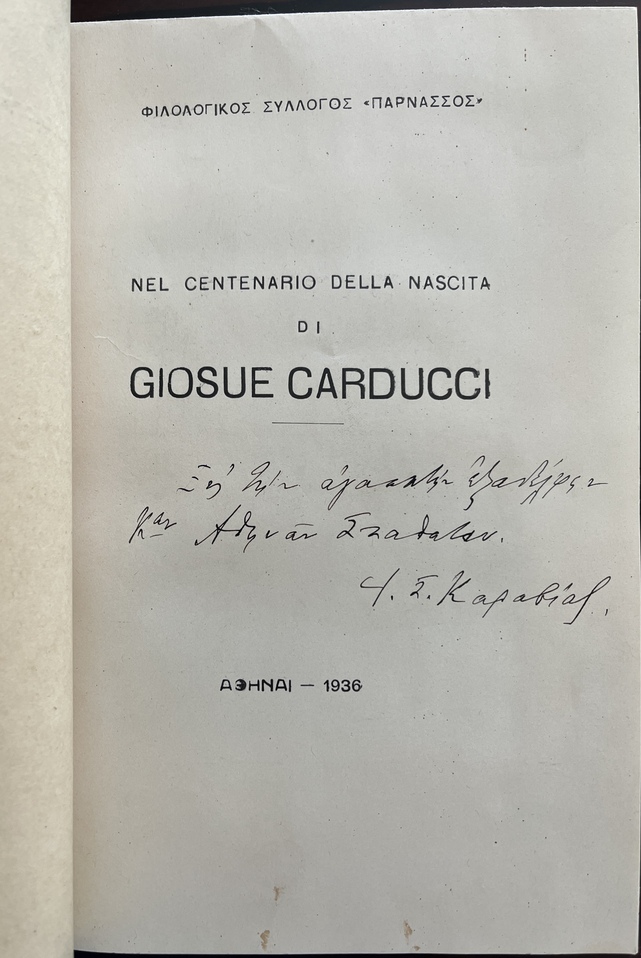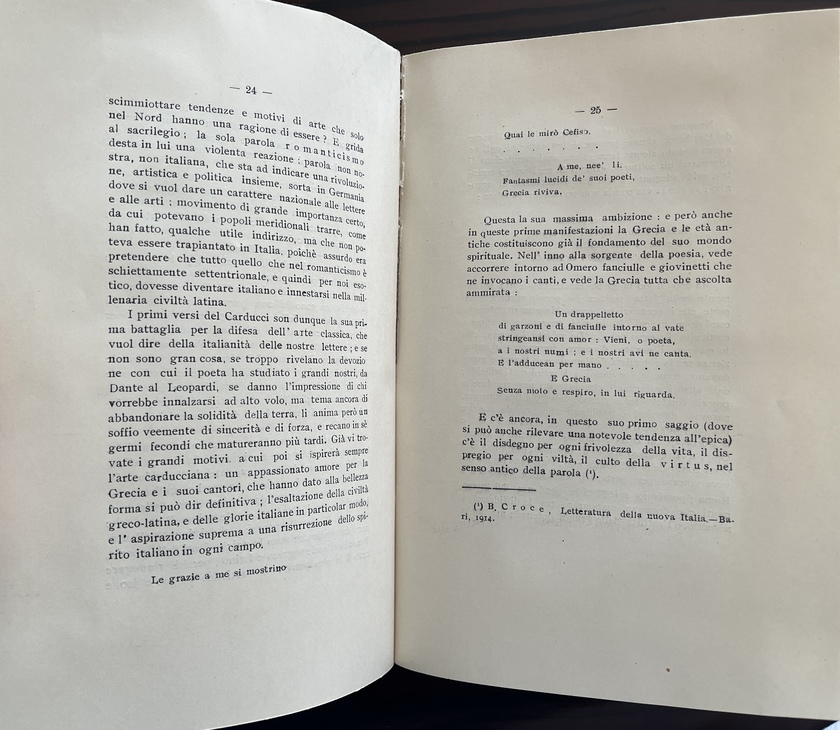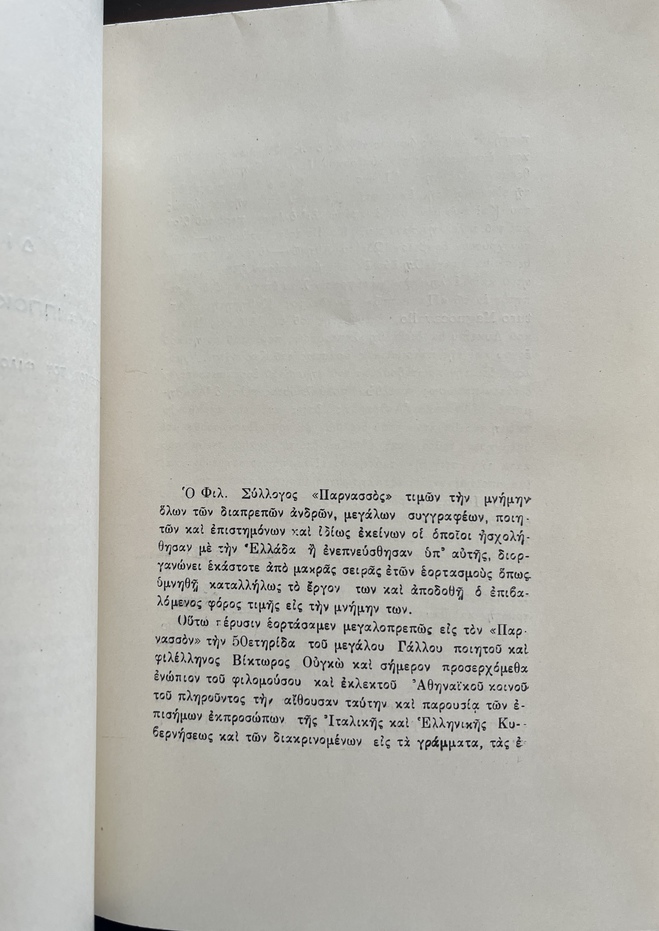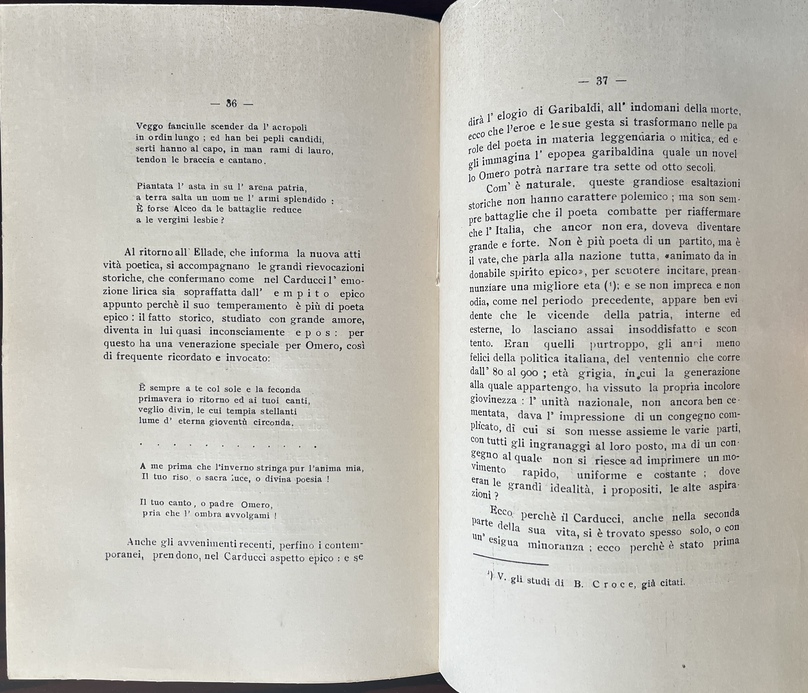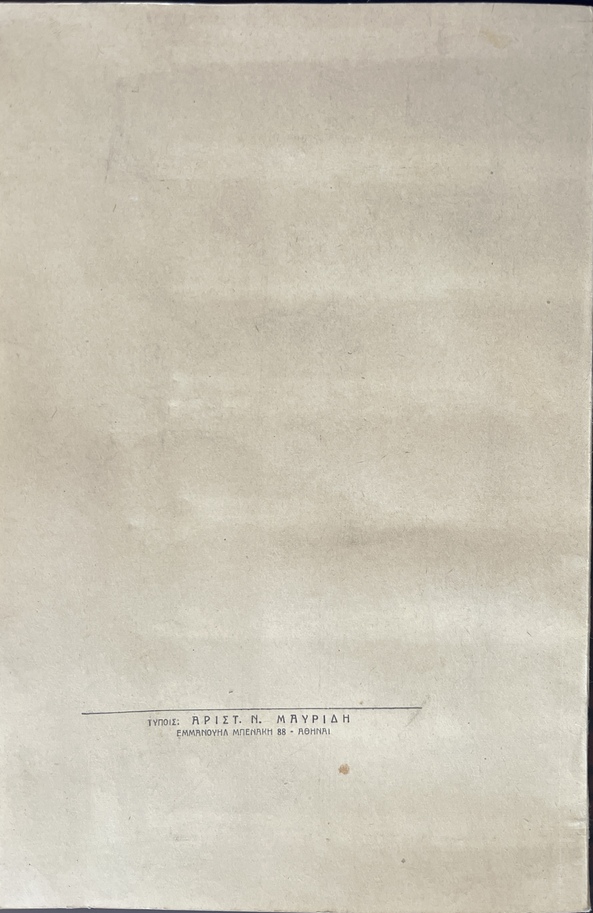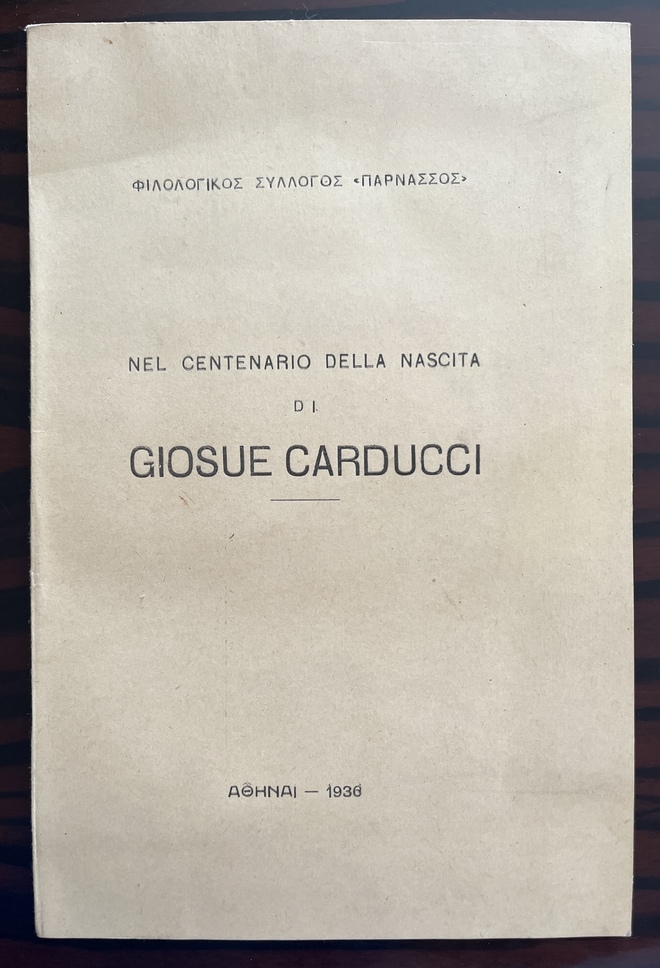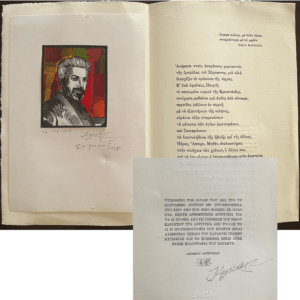Rare, 1936, Signed, Ippokratis Karavias, Centenary of Giosue Carducci, Parnassos
60.00€
Description
Φιλολογικός Σύλλογος Παρνασσός
NEL CENTENARIO DELLA NASCITA
DI
GIOSUE CARDUCCI
Published in Athens in 1936
Signed and dedicated by Ippokratis Karavias
Original Paper Binding
15.5 cm x 23.5 cm
39 Pages
First Edition
About the book: The book is an anniversary publication dedicated to the 100th anniversary of the birth of the Italian poet and Nobel laureate Giosuè Carducci. This publication is part of the cultural activities of the Association, which was founded in 1865 and is considered the first academy of letters and arts in Greece. The publication includes studies, translations of Carducci’s poems, as well as analyses of his work, highlighting his importance in European literature and his influence on the Greek intellectual world. The choice of the Parnassos Philological Association to honor Carducci reflects the Association’s effort to strengthen cultural ties between Greece and Italy.
Ippokratis Karavias (1866 – 1954) was a Greek lawyer and scholar from Ithaka. He studied at the law school of the University of Athens. He completed his studies in France and Italy and was appointed to senior administrative positions after his return to Greece. He was president of the Parnassos literary association, the Historical and Ethnological Society and the Greek-Japanese Society of Athens.
Giosuè Carducci (1835–1907) was a renowned Italian poet, scholar, and literary critic. He is celebrated as one of the most influential literary figures of 19th-century Italy and was the first Italian to win the Nobel Prize in Literature, awarded to him in 1906. Carducci was a professor of literature at the University of Bologna and was known for his deep knowledge of classical literature, which greatly influenced his style. His poetry often reflected themes of patriotism, classical antiquity, and rationalism, and he played a key role in shaping Italian national identity during the post-unification period. Among his most famous works are the collections “Rime nuove” and “Odi barbare”, which combine classical form with modern content. He was also active in politics and briefly served as a senator in the Kingdom of Italy. Carducci’s legacy remains strong in Italian culture and literature, where he is remembered for both his artistic achievements and his role as a voice of cultural and national renewal.
Additional information
| Languages | Greek, Italian |
|---|

